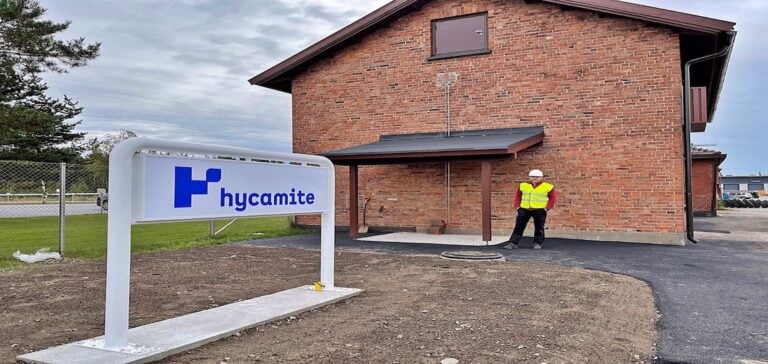Hycamite TCD Technologies announces financing from the Sojitz Group and Stephen Industries. The Finnish Climate Fund and external investors HAI Kapital, Holdix and Turret also participated in this investment. The funding totals 25 million euros to support Hycamite’s innovative technology for decarbonizing industry.
Injection of Funds for Hycamite: Large-Scale Decarbonizing Technology Development
Thanks to this injection of funds, Hycamite will be able to develop its technology on a commercial scale, enabling it to serve customers in North America, Japan and Europe. According to Mme. Laura Rahikka, CEO and Founder of Hycamite, this investment paves the way for large-scale production of their technology.
Hycamite’s technology aims to decarbonize industry through the production of low-carbon hydrogen and sustainable carbon products for demanding industrial applications. This technology is based on breaking down large quantities of methane into its basic components: hydrogen and carbon.
TCD technology: Hycamite’s sustainable hydrogen revolutionizes industrial production
The TCD (Thermal Chemical Decomposition) approach developed by Hycamite avoids greenhouse gas emissions into the atmosphere and uses sustainable catalysts. What’s more, it requires only 13% of the energy needed to produce hydrogen by electrolysis. Using methane as a feedstock, this technology enables rapid, large-scale production of hydrogen. Methane can come from natural gas, biomethane or synthetic methane. In addition, Hycamite’s technology makes it possible to use by-product streams from the petrochemical industry as feedstock, opening up the possibility of producing hydrogen with a negative carbon footprint using biomethane or e-methane, made from ambient CO2.
Strategic collaboration with Hycamite for a Decarbonized Economy
According to Taro Okamura, COO of Sojitz’s Chemical Division, this collaboration with Hycamite is strategically important for their company, as Sojitz strives to contribute to a decarbonized society through its business activities. Hycamite’s revolutionary zero-emission hydrogen technology could play a key role in the decarbonization of various industries. Sojitz will leverage its expertise and global network to work with Hycamite to promote the use of zero-emission hydrogen and the commercialization of carbon products.
Paula Laine, CEO of the Finnish Climate Fund, also stresses the importance of Hycamite’s solution in diversifying hydrogen projects and replacing “grey” hydrogen in industrial applications. She sees a promising role for this technology in the hydrogen economy, not least because the carbon from the process feed gas is recovered in solid form and can be used in a variety of applications.
Hycamite Technology: CCUS Advances for a Sustainable Future
Hycamite’s technology represents a breakthrough in carbon capture, utilization and storage (CCUS). The hydrogen produced can be used as an industrial feedstock or fuel, while Hycamite’s carbon nanoproducts find versatile applications in Li-ion batteries, concrete, composite materials and filter purifiers.
Founded in Kokkola, Finland, Hycamite is a privately-owned company whose methane pyrolysis technology is based on long-standing applied chemistry research at the University of Oulu, Finland.
With this major investment, Hycamite is well positioned to accelerate the time-to-market for its innovative technology, helping to shape a cleaner, more sustainable future for industry and the global economy.






















